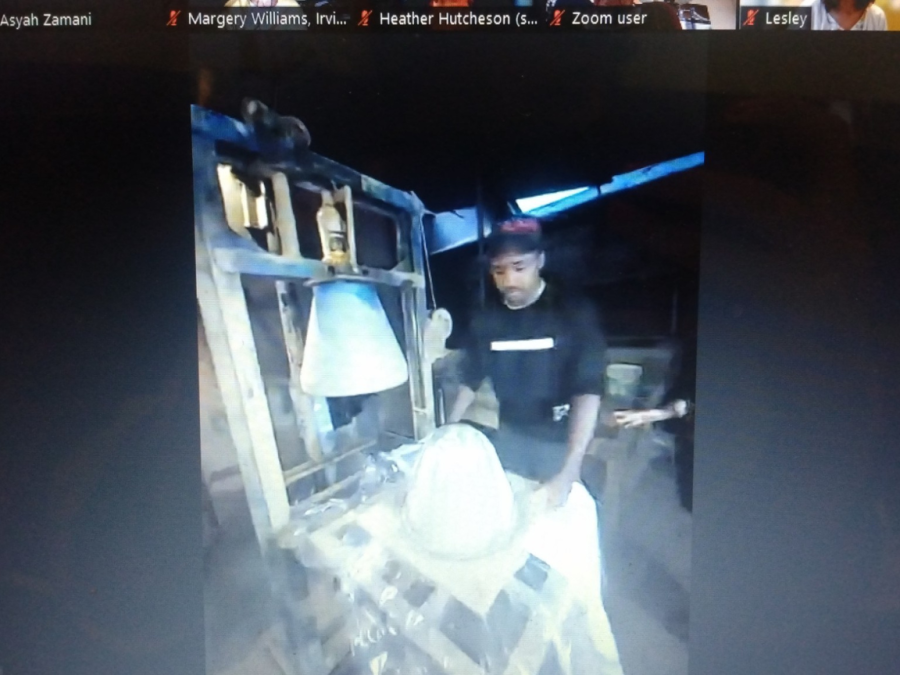Tanzanians present non-profit water filter organization
An online event was held through Zoom on Thursday to discuss Tanzania’s Wine to Water, a global non-profit that provides clean drinking water for families. Field Distributor Assistant and volunteer in Tanzania Charles Namngai shows how the water filter is made on a mold to the attendees.
An online event was held through Zoom on Thursday to discuss Tanzania’s Wine to Water, a global non-profit that provides clean drinking water for families.
The event was in honor of Earth week and was hosted by English Professor Heather Hutcheson. The event featured two people from Tanzania, who were Ramy Msyangi, a naturalist who takes people on safaris and Namtasha Charles, who works for Wine to Water.
Field Distributor Assistant and volunteer in Tanzania Charles Namngai demonstrated how the water filter for Wine to Water was made on a mold to the attendees.
Hutcheson said she and her husband went to Tanzania in August 2022 for overseas adventure travel and met Msyangi.
“When we were there, I said to him, ‘Hey, this would be really cool for my school to see. Can we set something up?’” Hutcheson said. “We had supported the organization while we were there and said we think we can have other people, students may be interested in coming or other people want to know about it.”
Msyangi spoke about the water crisis in his country.
“The rural area, they don’t have the good infrastructure to get the clean water to drink,” Msyangi said. “Only 24% of the population have the access of clean water to drink and 76% of the people they don’t have that access of the water.”
Msyangi said when people visit Tanzania, they make donations for the water filters.
“We expose and tell the people who are visiting our country and our community, tell them about the water crisis and tell them about the needs of the community and show them how it works here,” Msyangi said. “When you’re here, we expose you with the culture.”
Charles said for the air drying process, the filters must air dry fast and the time it takes depends on the weather. She added that the air drying process can go up to four weeks, but if the weather is hot, it takes only two weeks. She also said that the filters are packed on top of each other.
“Currently in Tanzania it’s raining, so the air drying process lasts a bit longer,” Charles said. “We fire the filters to a temperature of 960 degrees centigrade.”
Charles said 22,000 filters have been distributed in Tanzania.
“We go house to house to people who have the filters and we teach them and we remind them if they’re not using the filter,” Charles said. “That has both a positive impact because reminding them for those who are not using the filters, reminding them how to use and clean the filter, it has a positive impact because now they get to be reminded how to use it or even how to clean it.”
Msyangi said that families who receive the water filters are done by evaluations.
“We do the evaluations of the low-income families, the one that they cannot afford for filters,” Msyangi said.
Hutcheson said she was so excited for this event because she saw a place where she had already been.
“The Maasai people are super interesting and were very warm and welcomed us into their villages where we were able to see some of their traditions,” Hutcheson said. “What I found was that I loved seeing the animals. It was really interesting and unique, but I especially liked learning from the people.”
To learn more about Wine to Water, click here

